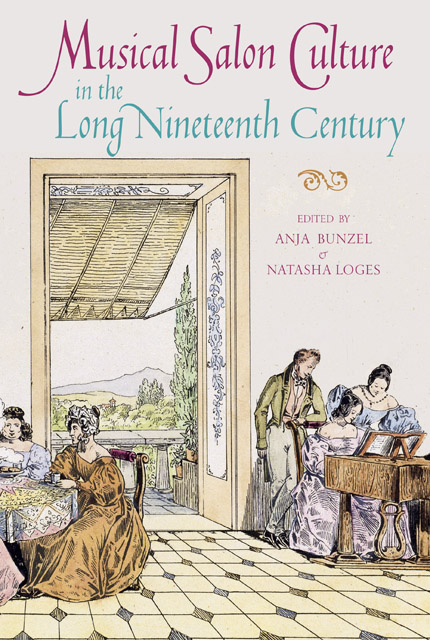11 - ‘Der Mensch ist zur Geselligkeit geboren’: Salon Culture, Night Thoughts and a Schubert Song
Published online by Cambridge University Press: 17 January 2023
Summary
Introduction
‘Man is a social being – that is why he has built cities, why he goes out in the streets with others of his kind, and why the salon was created.’ So wrote Adalbert Stifter (1805–68) in the early 1840s, in his part-affectionate, part-satirical study of Vienna’s salon scene. By that time, he could survey the diverse types of salons proliferating all around him – political, aesthetic, literary, etc. – in order to praise those who remained true to the original goal of the salon: merriment (Heiterkeit) in cultivated company. Those who excoriate salon life, he concludes, have not experienced it: ‘Why, the entire world is itself a salon.’
One of Vienna’s earlier salons was just such a case study. ‘People are born to be sociable. Only in association and traffic with other people can one attain that degree of development … that raises us above the animal kingdom’, wrote Caroline Pichler (1769–1843), whose life revolved around cultivated sociability and writing. Between solitude at her writing desk and evening repartee with the gifted and powerful, she carved out a distinctive identity for herself in literary and political realms largely dominated by men. Her salon, the Swedish poet Per Atterbom famously said, was equalled as a tourist attraction only by St Stephen’s Cathedral; if there is a hint of sarcasm in his words, there is also recognition of achievement. Some of the anecdotes in which figures from the Schubertian realm appear in her salons are captivating: for example, it was the poet of ‘Auf dem Wasser zu singen’, Friedrich von Stolberg, who whispered to Pichler the news of Napoleon’s escape from Elba as one of her Abendgesellschaften was just getting underway. A prolific writer, she was famous in her day, with several of her most popular novels translated into French, English, Danish, Czech, Italian and Romanian, and published as far away as America. But later literary trends resulted in her consignment to the remaindered shelf by 1900, with the exception of her lively memoirs, entitled Denkwürdigkeiten aus meinem Leben (Memorable Moments from My Life), published in 1844, the year after her death.
- Type
- Chapter
- Information
- Musical Salon Culture in the Long Nineteenth Century , pp. 167 - 184Publisher: Boydell & BrewerPrint publication year: 2019

